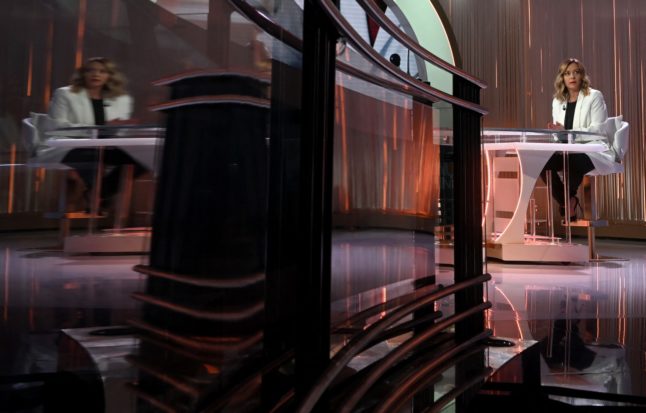The annual World Press Freedom Index published by Reporters Without Borders (RSF) on Friday ranked Italy 46th, which was five places lower than in 2023 and behind all other western European countries and most EU member states.
Italy ranked alongside Poland (47th), while Hungary, Malta, Albania and Greece were the only other countries in Europe to score lower.
France, Spain, Germany and most other major European countries improved their ranking in 2024, with Norway, Denmark and Sweden topping the table for press freedom again this year.
Globally however press freedom has worsened due to political attacks in the past year, according to RSF, including the detention of journalists, suppression of independent media outlets and widespread dissemination of misinformation.
READ ALSO: How much control does Giorgia Meloni’s government have over Italian media?
The index ranks 180 countries on the ability of journalists to work and report freely and independently.
Italy fell in the ranking amid concerns about lawsuits filed against journalists by politicians and following recent allegations of a creeping government influence on the country’s media.
“For the most part, Italian journalists enjoy a climate of freedom,” RSF said.
“But they sometimes give in to the temptation to censor themselves, either to conform to their news organisation’s editorial line, or to avoid a defamation suit or other form of legal action, or out of fear of reprisals by extremist groups or organised crime.”
Italian journalists have in recent months alleged censorship at state broadcaster Rai, which critics say is increasingly influenced by Giorgia Meloni’s government, while a member of her coalition government is trying to acquire news agency AGI.
Italian journalists also “denounce attempts by politicians to obstruct their freedom to cover judicial cases by means of a “gag law” – legge bavaglio – on top of the SLAPP procedures that are common practice in Italy,” RSF said.
READ ALSO: ‘Warning’ to Italy’s journalists as court fines reporter for defaming Meloni
It noted the fact that ‘defamation’ remains a crime in Italy, and that this is often used in lawsuits filed against individual journalists by powerful public figures – such as in the high-profile 2023 case of Prime Minister Giorgia Meloni suing anti-mafia journalist Roberto Saviano.
Defamation through the media can be punished in Italy with prison sentences of between six months to three years.
Mafia threats also remain a major issue in Italy, RSF noted, where some 20 journalists are under round-the-clock police protection after being the targets of intimidation and attacks.
“Journalists who investigate organised crime and corruption are systematically threatened and sometimes subjected to physical violence for their investigative work,” RSF said.



 Please whitelist us to continue reading.
Please whitelist us to continue reading.
Member comments